
The final 10 of
Provider’s 2015 20 To Watch are detailed on this and the following pages. Our July issue profiles the first 10 of this esteemed list.
Regardless of their title—CNA, RN, activity director, CEO—these inspiring individuals are at the pinnacle of the long term and post-acute care profession.
Learn how each previously unsung hero ascended to make this year’s list.
Susan EcclesAdministratorBroomall Rehabilitation and Nursing CenterBroomall, Pa.“Susan,” colleague Joanne Bundrick says, “is an amazing administrator. She is in front of us as a leader, beside us as a coach, and behind us as the cheerleader. And just when you think you’ve gone as far as you can go, she nudges you and says, ‘You can do it. Just a little more.’”
It must count as at least a minor irony, then, that Susan Eccles got involved in long term and post-acute care, “kind of by accident.” She had graduated from college with a degree in psychology and wasn’t sure what to do with her life. She began doing intake and admissions, and has never left.
“No two days are the same,” Eccles tells Provider. “There are lots of different kinds of people, and they all interconnect, but the ways they interconnect are always changing. And that really interests me.”
For the past 30 years, Eccles has worked in the profession, taking the day-by-day challenge and always thinking “about better ways to build a mouse trap,” she says.
But that shouldn’t be confused with bubble-gum and bailing wire, Bundrick says. “Susan is always one step ahead,” Bundrick says. “She is probably the most savvy business woman I know. She improves the business while improving the lives of the residents.
“For example, she has brought many specialists on staff in our facility. This not only has a financial impact but a positive resident outcome and, in the long run, decreased the amount of unnecessary work for the staff.
“The specialists provide in-house services, thereby decreasing the cost of transportation, decreasing unnecessary returns to the acute care facility, increasing the care for our residents, decreasing anxiety for our fragile population, and finally decreasing the work load of the staff. And, again she does it with a minimal effort.”
For Eccles, the glory is in the quest.
“It’s an opportunity to stay creative. I love the diversity of the people, whether I’m working with the residents themselves, the staff, or the families,” she says.
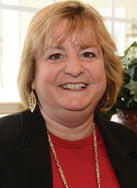
Cindi HalkolaActivity DirectorThe Chelsea at BrookfieldBelvidere, N.J.Despite life obstacles, Cindi Halkola always wanted to be a teacher and inspire others. In 2003, she got her bachelor’s degree in English, with a concentration in education and a certificate in elementary/high school English. After six years of temporary positions and no steady paycheck, Halkola became discouraged. She reached bottom when she was diagnosed with Hodgkin’s disease.
“My life just stopped. I lost all my purpose. I found myself jealous of a bird I saw catching a worm. I can relate to the residents on losing everything,” she says.
Halkola downsized her house and moved to a mobile home. She also underwent a career change while working in the post office, expecting to become a teacher.
But her fate took another turn. When visiting her mother’s companion in a local hospital, Halkola saw a big activities calendar on the wall and thought, “This is what I can do.” (She describes herself as a “project-oriented” teacher.) Then the Chelsea at Brookfield posted an ad for an activity director assistant at the memory care unit, and she got the job.
“It was a bit of a transition to go from working with children to seniors, but there are similarities,” she says. “It’s teaching with no pressure. It doesn’t matter if they learn—what matters to me is if they smile.
“They may not remember why they’re smiling (breakfast, lunch, exercise),” she adds, but “all I know is at the end of the day, if they’re grinning, I did my job.”
When she began at Chelsea, she initiated an annual talent show, a bell choir, and an annual Halloween play that she adapted from a children’s book by Erica Silverman called, “The Big Pumpkin.”
“The success and applause from these activities fuels the confidence, self-esteem, and sense of belonging” of the residents with memory impairments, says Director of Communications at the Chelsea Senior Living corporate office Tom Kranz.
Lynne KatzmannFounder and Chief Executive OfficerJuniper CommunitiesBloomfield, N.J.“Maybe I’ve always been the Don Quixote type—tilting at windmills,” Lynne Katzmann tells Provider. “But I keep on going. And if you keep on going, things turn out.”
Indeed: Katzmann, trained by the London School of Economics, is a relative late-comer to long term and post-acute care.
Having studied European health care systems, she helped Oregon put together the first-of-its-kind state health care system in the early 1980s.
Many doctors at the time referred to the program as “a plane with lead wings,” but the thing is still flying today, Katzmann says, laughing.
Katzmann, too, was among the first to see that the Affordable Care Act was going to have a Domino effect.
“Essentially, readmission penalties changed the incentives for hospitals. Now that’s happened before. But what they said this time was, we’re going to pay you for an episode, and that episode goes beyond the walls of the hospital. The real issue is people after they leave the hospital—what happens to them?
The care and service they get is critical. But it’s not just the physical care—it’s the network of social supports and services,” she says.
And it had also occurred to Katzmann that many of the struggles in long term and post-acute care stemmed from the larger anxieties about aging in America.
“I believed that Juniper could be a model for public policy,” she says. “Part of it was that aging was part of the life cycle and not something to be feared, but to be lived to its fullest.
“Our buildings are really designed to create an acceptance of aging, which is not where we’re at in this country. I believe boomers are going to change the face of aging. I believe we have the market power,” Katzmann says.
“I hope I’m right, too. I’m going to at least try to get the word out.”

Nadia WelsherDirector of Social ServicesGrand Terrace Health Care CenterGrand Terrace, Calif.It took Nadia Welsher several moments of discussion before she realized that she was on this year’s 20 To Watch list. “I thought it was a joke,” she says.
But it’s no laughing matter to those who know her well.
“Nadia has spent the past 18 years improving the lives of hundreds of residents and inspiring those who work alongside her to give more of themselves in the service of those whose care they are entrusted,” says North American Healthcare’s Vice President for Operations Jeff Stewart.
“Working in a variety of director roles, Nadia has made person-centered care the hallmark of her career, before the phrase became popular. Her genuine love and concern for those she serves has earned her an affectionate ‘adoption’ into many a resident’s family as their own ‘granddaughter.’”
Stewart continues: “She involves all around her in her labor of love, including local physicians, community service groups, fellow employees, and civic leaders. Drawn to her passion for uplifting residents, she has inspired everyone from Girl Scout troops to Lions Club members to share of their time and talents in the shared goal of touching the lives of her residents.”
Welsher had finished her high school credits early and had some decisions to make.
“They were trying to find something for me to do while I left school early,” she recalls. “My counselor said, ‘I think you’d be great at working with the elderly. They have this opening at a nursing home in Grand Terrace. They need an assistant activities director. Would you like to give it a shot?’ I said, ‘Sure.’ I’ve been here ever since.”
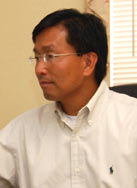
Charles Larobis, RNHealth Services DirectorThe Chelsea at FanwoodFanwood, N.J.Career books are filled with advice to “follow your passion”—Charles Larobis, RN, BSN, CDP, is the embodiment of one who does just that.
“Charles combines the skills of an experienced caregiver with heart and spirituality to bring extraordinary humanity home to our residents,” says Tom Kranz, communications director at the Chelsea Senior Living corporate office.
“Charles believes in the power of prayer and will frequently visit our hospice residents to say a prayer and to ensure they are never alone. He also goes out of his way to visit residents who go to the hospital or rehab to ensure they will return to their home.”
Larobis has 23 years of nursing experience under his belt. For the first 13 years, he was in an acute care hospital setting with a subsequent transition to the emergency department (ED) as a clinical coordinator.
One day a colleague presented him an opportunity to work with consultants in an assisted living setting, and he discovered that being a nurse in this type of setting truly made a lasting difference in resident lives, unlike the transitory nature of ED nursing. He left the ED and has spent most of his career as a director of nursing in assisted living.
Larobis has a strong focus on reducing the use of psychotropic medications, specifically antipsychotics. He frequently reviews all medications, falls, and other incidents relating to the residents and has one-on-one meetings with them regularly. He also leads discussions with families on appropriate levels of care and hospice use if needed.
To ensure staff are engaged and paying attention to specific residents’ issues, Larobis conducts daily staff meetings. He is a certified medication aide instructor and enjoys training staff. He has been extremely influential in making Chelsea’s medication administration record system work and helping the staff become accustomed to it.
Larobis also serves as a mentor to other nurses. He says to his students, “This is the work of the heart.”
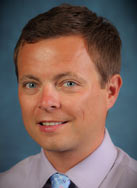
Greg JoyceChief Executive OfficerLegacy Retirement CommunitiesLincoln, Neb.Some people choose their profession, for others the profession chooses them. The latter appears to be the case with Greg Joyce, who says he “more or less grew up in the field.”
His grandfather, Jerry, founded what became the family’s company in 1995. A commercial real estate developer before then, Joyce’s grandfather had no previous business experience in senior living. What spurred Jerry’s professional change was looking at senior living options for his mother. He didn’t find anything that fit the bill, yet he had an eye for detail. He saw a great opportunity to introduce a new form of senior living to the Lincoln community.
Like his grandfather, Joyce heard the siren song of long term care. After attending the University of Nebraska, he, too, thought he wanted to go into real estate. He got his license and shortly thereafter worked as a marketing assistant.
Originally Joyce thought working in a long term care facility was going to be a weekend gig. However, he found himself wanting to spend more time with the senior residents. In 2003, Joyce accepted a full-time marketing position in the family company, which houses 750 residents across four communities. He worked in sales and marketing for 10 years, then became overall marketing director. In 2011, he shifted to his current role as CEO.
“Many, many people have stuck with me over the years,” says Joyce. He recalls a couple interested in moving into Legacy Retirement whom he worked with for several weeks. Over this time, he met their extended family. The couple even baked a birthday cake for him. Although he was unable to place the couple into a facility due to finances, he has maintained a relationship with them ever since.
“Seniors housing is something for families beyond four walls and a ceiling,” he says. “Our company’s mission is to enrich lives. We take very seriously everyone’s personal needs, wants, goals, and desires.”
Residents are not the only ones who benefit from Joyce’s relationship-based business approach.
“There is a thought-provoking question that asks, ‘What happens if we invest in developing our people and then they leave the company?’ Greg chooses to go to the next level and ask the more powerful question, ‘What happens if we don’t and they stay?’” says Enrichment and Community Relations Director at Legacy Retirement Communities Tracy Haefele.
To this end, Joyce and his family hold biannual Management Summits among the facilities and quarterly small group meetings in the corporate office to improve communication between the executive leadership team, management staff, and ownership.
“He and his family are regular attendees at resident and employee functions (bowling, ice skating, Family Fun Fest, Meals on Wheels),” says Haefele. “Staff have a real sense of working with him, not for him. He views retirement living as his life’s work—not just the profession he happens to be in.”
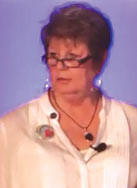
Donna Adair, CNA/CMAProfessional Development CoachNational Association of Health Care AssistantsJoplin, Mo.Donna Adair started her career in an unconventional way: as a wife and mother of four children. Her household grew to eight children when her sister’s children came to live with her family. In two years, her sister’s children returned home but left Adair’s family in considerable debt. With no formal education other than high school and no work experience other than being a stay-at-home mom, Adair discovered that becoming a certified nurse assistant (CNA) in long term care was a viable option.
Adair decided to go to work at Osceola Leisure Manor, the local nursing care center in Osceola, Iowa, and gain her CNA certification.
She moved with her husband to Alabama, where he attended school to become a funeral director and embalmer. Adair worked as a CNA in a hospital setting.
After losing nearly everything in a tornado, she moved to Warrensburg, Mo., to work at the Missouri Veterans Home, where working as a CNA went from a job to a career.
She was a CNA for 20 years, then in the fall of 2012 she endured physical problems. Her doctor told her that she needed to seek a “Plan B” career.
Devastated, Adair reached out to the National Association of Health Care Assistants (NAHCA), which she has been actively involved with for 10 years and won several awards. She was offered a position at NAHCA and is currently a professional development coach to a team of CNAs at 56 member centers.
“She is a lovely and an amazing person and represents the heights a certified nurse assistant can reach,” says Kathleen Collins Pagels, executive director of the Arizona Health Care Association. “She has touched my life and many others.”
Along the way, Adair also became a motivational speaker for the field. She started learning her residents’ stories as a way to build relationships. In doing so, she discovered she could use their stories to connect them, redirect them, make them laugh, and then tell their stories when they were gone.
This activity turned into a presentation titled, “Popcorn Stories,” as a way to teach her CNA peers to do the same.
When asked about how she learned to tell these stories in the engaging way that she does, she credits her blind grandfather, Big Daddy, who asked her and his 11 children to describe daily events for him. “He was teaching me to tell a story so a blind man could see,” she says.
Scott Rifkin, MD Chief Executive Officer/Managing PartnerMid-Atlantic Health CareTimonium, Md.The people on this list often make sacrifices for their work, but Scott Rifkin, MD, has a lot to lose.
“Damn,” he says, “I might have to shave.”
Perhaps Rifkin’s wry, self-deprecating humor is just a bonus, and has nothing to do with the fact that he runs Maryland’s largest chain of skilled nursing centers (with readmission rates at half those of the rest of the country). Then again…
“Dr. Rifkin loves getting up every morning and working with the talented team he has assembled,” Mid-Atlantic Vice President Mike Jacobs tells
Provider. “He pushes Mid-Atlantic to engage in cutting-edge programs that reduce cost of care by helping residents stay healthy and out of the hospital. As a result, Mid-Atlantic is getting patients home faster and healthier than ever before.”
Rifkin came into the profession as an internist. While trying to build up his practice, he interviewed for a part-time job as medical director in a center that was, um, troubled.
“And I wasn’t smart enough to know that, if the secretary of the health department is walking the hallways, it’s a really, really bad sign,” he says. “So I took the job.”
Within months, though, Rifkin had begun turning things around. He spent the next several years as his own kind of A-Team, taking on failing centers and focusing on fixing them—stat. If the situation was sometimes desperate, it certainly was never serious.
“All those years of being a medical director, I kept saying, ‘There has got to be a different way to run these places. There has to be a way to focus on outcomes, and the rest ought to take care of themselves,’” he says.
More than a decade ago, Rifkin says he decided it was time to put his money where his mouth was.
Mid-Atlantic was among the earliest places to focus on hiring nurse directors; it has its own proprietary electronic health record system, a step-up unit modeled on step-down units in hospitals. The passage of the Affordable Care Act was to Rifkin a sign that he had made the right bet.
“We chose this path 10 years ago, and then five years ago, the world changed with the Affordable Care Act. What that really meant was that the various insurers and government agencies would share some savings with you if you kept people out of the hospital,” he says.
For Rifkin, though, the key asset is staff. Among them is a combat veteran who did multiple tours in Iraq and Afghanistan and focused on getting wounded children off of battlefields and to Europe for care.
“My attitude is, ‘We’ll just keep doing it better,’” he says.
Mariflor Liwanag, RNDirector of Nursing ServicesGolden LivingCenter—ReedleyReedley, Calif.Many stars on this list are modest about their own accomplishments. Mariflor Liwanag, however, had to be to convinced to let her name appear on this list.
“That’s okay,” she said in a phone interview. “You can just give it to someone else.”
Colleagues say that her modesty is no affectation. Liwanag, they say, really does feel better putting the spotlight on others.
“Mariflor is an inspiration to us all,” Golden Living’s Sarah Meche says. “She will be the first one to begin planning for a celebration for our staff members when we reach a goal, or simply to say thanks.
“She is one of Golden Living’s best nursing advisors and has assisted Golden Living with numerous clinical initiatives. She was given the Nursing Excellence Award from Golden Living in 2010 in recognition of her commitment to the Amalga Clinical Start Up System.
“The Amalga computer system,” Meche adds, “allows a director of nursing to complete a comprehensive overview of care delivery every morning. The system allows her to prioritize the care needs of her residents and assure adequate resources are assigned each day.”
Meche is one of many who think that it’s no coincidence that Golden Living’s Reedley building has a staff turnover rate of 17.5 percent (against a national standard of around 42 percent), or that Liwanag’s building has held a Five-Star rating in the Centers for Medicare & Medicaid Services program every year since the rating system began, or that state surveyors constantly rate Golden LivingCenter—Reedley among the best.
The residents may feel they need Liwanag; she disagrees and says she needs the residents even more.
“I’ve just lost my mom, so I spend most of my time here rather than in my house,” Liwanag says. “The reputation of a nursing home is, you end up dying there. I just want to them to feel that it’s their home, too.”
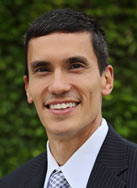
Vernon ZegerExecutive DirectorHawthorne Village of BrandonBrandon, Fla.Sometimes people have to learn what they don’t like before figuring out what they do like in a profession.
Originally, Vernon Zeger attended the University of South Florida to study radiation therapy. He soon realized after experiencing his first round of radiation treatment on younger kids that this particular field was not for him. When he consulted a career counselor about professions that would give him job security, the counselor suggested that he should go into long term care.
“The funny thing was that I previously worked weekends for six years at a continuing care retirement community in Florida while attending college,” he tells
Provider.
Zeger eventually got a degree in health care administration in business and has not looked back.
In fact, he looks forward to all incoming residents, personally greeting them shortly after admission and then frequently stops by to check on how they are doing.
“Vern truly cares about his residents and his staff. It is not just a job to him,” says Deborah Franklin, director of operations at Florida Living Options, in Dover, Fla.
“Vern has staff meetings the last Friday of each month to cover all three shifts. It is the time the staff know he is there to share in their issues, their suggestions, and to just talk. He plays some fun games with prizes that are usually about resident rights or quality to make learning fun.”
Zeger also cares about the field as a whole. He is on the County Workforce board, he was Florida Health Care Association district president for four years, and is now regional vice president.
“The reason why Vern is so successful is he puts others first and cares from his heart,” says Franklin.
Zeger advises administrators in training to “take positions in different areas before going into the administrator role. Not only will it enable you to grow, but it will make you more rounded and not go into a position green.”